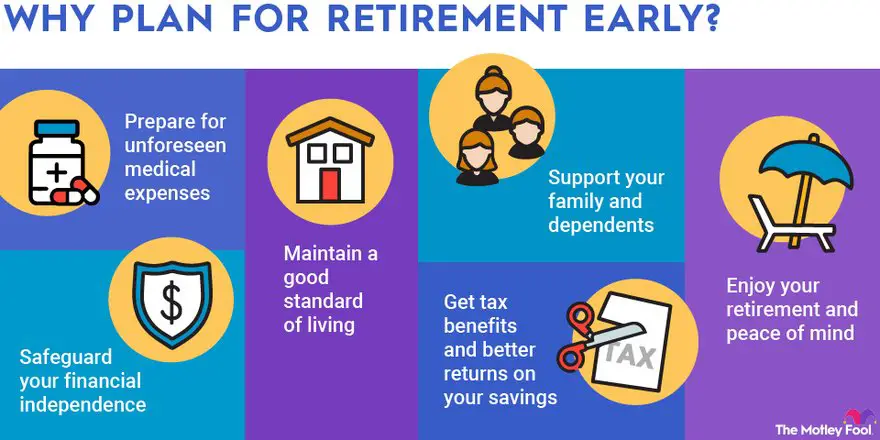Looking for tips on financing an investment property? Look no further! In this article, we will guide you through the ins and outs of securing financing for your next investment property. Whether you’re a seasoned investor or just starting out, navigating the world of real estate financing can be overwhelming. That’s why we’re here to help! By following our expert advice and practical tips, you’ll be well-equipped to secure the financing you need to make your investment property dreams a reality. So, let’s dive in and explore the tips for financing an investment property that will set you on the path to success.
Tips for Financing an Investment Property
Investing in real estate can be a lucrative venture, and one of the key decisions you’ll face as an investor is how to finance your investment property. Securing the right financing is crucial to ensure a smooth transaction and maximum returns. In this article, we’ll explore some valuable tips for financing an investment property to help you make informed decisions and set yourself up for success.
1. Determine your investment strategy
Before diving into financing options, it’s important to have a clear understanding of your investment strategy. Are you looking for short-term gains through fix-and-flip properties, or are you focused on long-term rental income? Identifying your strategy will help you choose the most suitable financing options for your investment goals.
1.1 Fix-and-flip properties
If your strategy is to buy properties, renovate them, and sell for a profit, you may opt for short-term financing options such as:
- Hard money loans: These are short-term loans with higher interest rates and lower qualification requirements, ideal for quick property flips.
- Home equity line of credit (HELOC): If you already own a property, you can tap into your existing home equity to fund your investment property purchase.
- Personal loans: Depending on your creditworthiness, you could consider personal loans to finance your fix-and-flip projects.
1.2 Buy-and-hold properties
For those planning to generate rental income over the long term, traditional mortgage options are more suitable, including:
- Conventional loans: These mortgages cater to investors with solid credit and typically require a down payment of 15% to 25%.
- Government-backed loans: FHA, VA, and USDA loans offer more flexible qualification criteria and lower down payment requirements.
- Portfolio loans: These loans are offered by smaller banks or credit unions and are kept in the lender’s portfolio instead of being sold on the secondary market.
2. Improve your credit score
Having a good credit score is crucial when seeking financing for an investment property. Lenders evaluate your creditworthiness to determine the interest rate and loan terms you qualify for. Here are some tips to improve your credit score:
- Pay your bills on time: Late payments can have a negative impact on your credit score, so make sure to pay all your bills promptly.
- Keep credit utilization low: Aim to keep your credit card balances below 30% of your available credit limit. High credit utilization can lower your credit score.
- Minimize new credit applications: Too many new credit applications in a short period can signal financial instability and potentially lower your credit score.
- Regularly check your credit report: Review your credit report for errors or inaccuracies that could be negatively impacting your score. Dispute any mistakes you find.
- Consider a credit builder loan: If you have a limited credit history or need to rebuild your credit, a credit builder loan can help establish positive credit activity.
3. Save for a down payment
Most lenders require a down payment for investment properties, and the required amount varies depending on the financing option and your creditworthiness. Saving for a substantial down payment has several benefits:
- Lower interest rates: A larger down payment can help you secure a lower interest rate, potentially saving you thousands of dollars over the life of the loan.
- Less risk for lenders: A higher down payment reduces the lender’s risk, increasing the likelihood of loan approval.
- Improved cash flow: A larger down payment means a smaller loan amount, resulting in lower monthly mortgage payments and better cash flow from rental income.
4. Prepare a solid business plan
When approaching lenders, having a thorough and well-executed business plan can significantly improve your chances of securing financing. Your plan should include:
- Property analysis: Provide details about the property you intend to purchase, including its location, condition, and potential for appreciation or rental income.
- Financial projections: Outline the expected cash flow, operating expenses, projected returns, and any renovation or improvement costs.
- Exit strategy: Clearly define your exit strategy, whether it’s selling the property, refinancing, or holding it as a long-term rental.
- Experience and team: Highlight your experience in real estate investing and introduce any partners or professionals assisting you, such as contractors or property managers.
5. Explore alternative financing options
In addition to traditional financing, there are alternative options worth considering, especially if you face challenges with credit or down payments. Some alternatives include:
- Private money lenders: These individuals or companies offer loans based on the property’s value rather than strict credit requirements. Interest rates may be higher, but the qualification process is often more flexible.
- Crowdfunding: Real estate crowdfunding platforms allow multiple investors to pool their money and invest in properties together. This option can provide access to larger investment opportunities with smaller contribution amounts.
- Self-directed IRA: If you have a self-directed IRA, you can use the funds to invest in real estate. This option offers tax advantages, but it requires careful compliance with IRS regulations.
- Seller financing: In some cases, the property seller may be willing to finance the purchase. Negotiating seller financing terms can provide flexibility and potentially eliminate some of the traditional lender requirements.
6. Build strong relationships with lenders
Establishing relationships with lenders can be beneficial for future investment opportunities. Here’s how you can build strong connections:
- Research lenders: Research and identify lenders who specialize in investment property financing. Look for lenders experienced with the type of investment strategy you’re pursuing.
- Network at real estate events: Attend local real estate networking events, conferences, or seminars to meet lenders and establish face-to-face connections.
- Work with a mortgage broker: Mortgage brokers have access to multiple lenders and can help match you with the most suitable financing options for your investment needs.
- Provide consistent updates: Stay in touch with lenders, providing them with regular updates on your investment portfolio and successes. This can help them gain trust in your abilities as an investor.
In conclusion, financing an investment property requires careful planning and consideration. By determining your investment strategy, improving your credit score, saving for a down payment, preparing a solid business plan, exploring alternative financing options, and building strong relationships with lenders, you’ll be well-equipped to navigate the world of investment property financing and maximize your chances of success.
The Beginner’s Guide to Financing Rental Properties
Frequently Asked Questions
Frequently Asked Questions (FAQs)
What are some tips for financing an investment property?
When it comes to financing an investment property, here are some tips to consider:
How can I improve my chances of getting approved for a loan?
To improve your chances of getting approved for a loan, you can:
What documentation do I need to provide for financing an investment property?
When financing an investment property, you will typically need to provide the following documentation:
What is the difference between a down payment and a closing cost?
While both a down payment and closing costs are involved in financing an investment property, they serve different purposes:
What financing options are available for investment properties?
There are several financing options available for investment properties, including:
Can I use my home equity to finance an investment property?
Yes, you can use your home equity to finance an investment property through:
What is the debt-to-income ratio and why is it important for financing an investment property?
The debt-to-income (DTI) ratio is an important factor when it comes to financing an investment property because:
What are the potential tax benefits of financing an investment property?
Financing an investment property can come with potential tax benefits, including:
Final Thoughts
In summary, financing an investment property requires careful planning and consideration. One key tip is to maintain a good credit score and ensure a low debt-to-income ratio, as this will increase your chances of securing a favorable loan. It is also important to save for a down payment and consider alternative financing options such as private lenders or partnerships. Additionally, researching and comparing different mortgage rates and terms can help you find the best deal for your investment property. By following these tips for financing an investment property, you can increase your chances of success in the real estate market.



